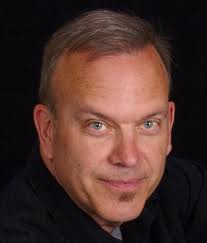Podcast: Play in new window | Download | Embed
Subscribe: RSS
 David Fitch is a co-pastor and founder of Life on the Vine Christian Community and the author of The Great Giveawaway and The End of Evangelism?
David Fitch is a co-pastor and founder of Life on the Vine Christian Community and the author of The Great Giveawaway and The End of Evangelism?

Geoff Holsclaw is also a co-pastor at Life on the Vine Christian Community, an adjuncy professor of theology at Northern Seminary, and a regional coordinator for Ecclesia Network.
.
David & Geoff join me on Seminary Dropout to talk about their new book Prodigal Christianity. Prodigal Christianity is a book for church & lay leaders to help their churches navigate through different issues of the day (scripture, sexuality, justice, etc.) , especially for those like me who don’t fit well into, what the authors call the Neo-Reformed or Emergent streams of Christianity
.


Shane,
I listened to this episode today, and as with every episode of SD, I appreciate the way you handled the subject matter and, for the most part, let the guests speak for themselves. I think you made an important contribution to the LGBT discussion this week, and although I know that isn’t especially a focus of your podcast or blog, it is an extremely important issue in the American church today and I was glad to see you take it on, along with David and Geoff. I’m really interested to read their book now (added to my long virtual stack of books to tackle when I have time to read something that isn’t assigned).
I did want to bring up one concern from the episode that I think can be a common pitfall in the discussion of Christian sexual ethics, particularly regarding LGBT issues. You commented on the Prodigal Christianity’s reference to pedophilia as a clever way to address the concept of sexual sin in a more widely accepted and agreed-upon form, rather than addressing the LGBT issue more squarely. This sort of approach, however, runs the risk of doing more harm than good, as it attempts to draw a connection between two types of sexual activity, or even “orientations,” that is faulty. I’ll explain.
First of all, you referred to pedophilia in this episode as an orientation, which is technically incorrect. A sexual orientation is defined by the *sex* to whom one is attracted, not the age, object, species, or anything else. This is represented by terms like “heterosexual,” or the first three terms that make up the acronym LGBT (the T, which stands for transgender, refers to a gender identity, not an orientation).
Sexual practices such as pedophilia or zoophilia, for example, may be engaged in by a person of any sexual orientation, and should be seen as separate. I would even go so far as to say that references to pedophilia and those to homosexuality should be kept as far from one another as possible, because for decades the two were not just compared, but intermingled and equated as manifestations of the same condition, i.e., homosexuals were believed to all be pedophiles (something that studies have shown to be false — pedophiles most commonly are straight men). So much harm has been done to gay and lesbian people because of this misconception, not the least of which has been to the great number of homeless gay and lesbian youth today, many of whom were thrown out of their homes by parents who assumed they would molest their siblings.
Another crucial difference between homosexuality and pedophilia is the matter of consent. Homosexual relationships between two consenting adults who love one another should not be equated with an abusive situation in which an adult takes advantage of a child. The hermeneutic by which we discern the morality of adult relationships must be different from the one by which we discern the morality of activity between adults and children.
I understand the general intent of such a comparison, to show that inclination does not equal morality, and that point is valid. Most people would concede this, regardless of their orientation. We just need to be very, very careful with how we discuss these matters, keeping foremost in mind that we are talking about real people, many of whom love Jesus and seek to live by his Spirit. I suspect that this is exactly where your heart is, Shane, but felt it was necessary to address this, as I also suspect there may have been some listeners within the LGBT community who took your comments the wrong way.
Peace,
James
JR Buckley I really appreciate this James. I especially appreciate your grace and mercy in correcting me and for giving me the benefit of the doubt and hearing my words for what I meant to say.
Perhaps a better way of phrasing what I was trying to say was that the church should help everyone walk through they’re sexual issues whatever they may be.